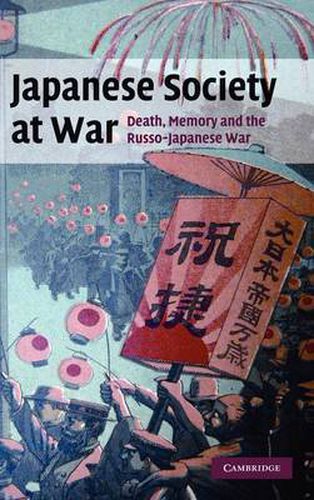Readings Newsletter
Become a Readings Member to make your shopping experience even easier.
Sign in or sign up for free!
You’re not far away from qualifying for FREE standard shipping within Australia
You’ve qualified for FREE standard shipping within Australia
The cart is loading…






As the first international conflict of the twentieth century, the Russo-Japanese War attracted much contemporary global interest. This text was the first full-length study to examine the war from the perspective of its impact on Japanese society, and sheds light on its implications for modern Japan. What did the war mean to the Japanese people and how did they respond to it? Naoko Shimazu presents a fascinating and highly innovative account of the attitudes of ordinary Japanese people towards the war through a wide range of sources including personal diaries, letters, and contemporary images. She deals with themes such as conscripts and battlefield death, war commemoration, heroic myths, and war in popular culture. Challenging the orthodox view of Meiji Japan as monolithic, she shows that there existed a complex and ambivalent relationship between the Japanese state and society.
$9.00 standard shipping within Australia
FREE standard shipping within Australia for orders over $100.00
Express & International shipping calculated at checkout
As the first international conflict of the twentieth century, the Russo-Japanese War attracted much contemporary global interest. This text was the first full-length study to examine the war from the perspective of its impact on Japanese society, and sheds light on its implications for modern Japan. What did the war mean to the Japanese people and how did they respond to it? Naoko Shimazu presents a fascinating and highly innovative account of the attitudes of ordinary Japanese people towards the war through a wide range of sources including personal diaries, letters, and contemporary images. She deals with themes such as conscripts and battlefield death, war commemoration, heroic myths, and war in popular culture. Challenging the orthodox view of Meiji Japan as monolithic, she shows that there existed a complex and ambivalent relationship between the Japanese state and society.